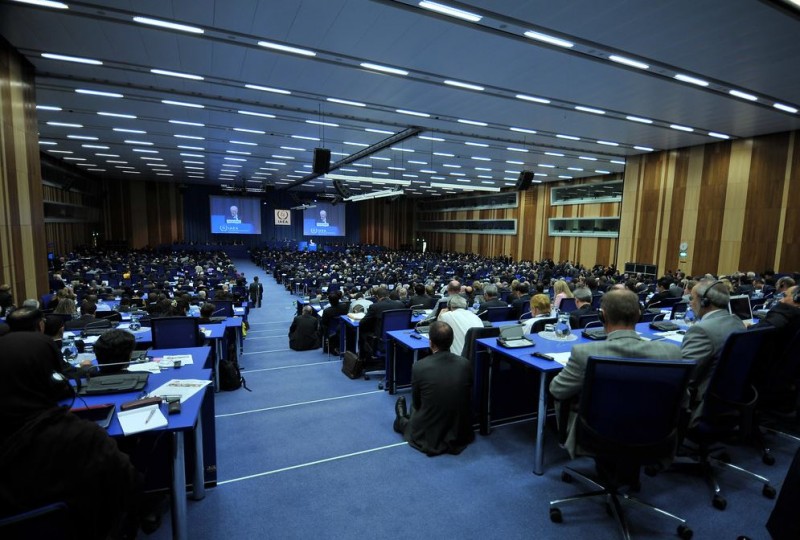
Nuclear technology has the potential to provide numerous benefits to humanity, ranging from clean energy generation to medical applications. However, its development and usage must be closely monitored to prevent misuse and ensure global safety and peace. The International Atomic Energy Agency (IAEA) plays a critical role in achieving these objectives. In this article, we will explore the establishment, functions, and significance of the IAEA in ensuring the safe and peaceful uses of nuclear technology.
The IAEA, established in 1957, is an autonomous international organization under the United Nations system. Its primary mandate is to promote the peaceful uses of nuclear energy while preventing the proliferation of nuclear weapons. By facilitating international cooperation, the agency aims to accelerate and enlarge the contribution of atomic energy to peace, health, and prosperity worldwide.
The Establishment of International Atomic Energy Agency (IAEA)
- The Purpose and Mission
The IAEA's fundamental purpose is to promote the safe and secure use of nuclear energy for peaceful purposes, such as electricity generation, medical and industrial applications, and agricultural improvements. The agency seeks to harness the benefits of nuclear technology while minimizing the risks associated with its misuse.
- Structure and Membership
The IAEA is governed by its General Conference, consisting of representatives from all member states. It operates in collaboration with the United Nations and other international organizations. As of [current year], the agency has [number] member states.
Safeguards and Non-Proliferation Measures
- Nuclear Safeguards
One of the IAEA's primary responsibilities is to implement nuclear safeguards to ensure that nuclear materials are used solely for peaceful purposes. These safeguards involve inspections, verifications, and monitoring of nuclear facilities and materials to prevent their diversion into weapons programs.
- Non-Proliferation Efforts
The IAEA works tirelessly to prevent the proliferation of nuclear weapons by providing technical expertise and promoting the adoption of non-proliferation treaties and agreements among member states. Through its efforts, the agency has contributed significantly to global security.
Promoting Safe Nuclear Energy
- Nuclear Safety Standards
To ensure the safe operation of nuclear power plants, the IAEA develops and promotes international nuclear safety standards. These standards cover various aspects, including design, construction, and emergency preparedness, with the aim of preventing accidents and mitigating their consequences.
- Nuclear Security Measures
In addition to safety, the IAEA addresses nuclear security concerns by assisting member states in enhancing their capabilities to protect nuclear facilities and materials from theft, sabotage, or unauthorized use. This helps reduce the risk of nuclear terrorism and unlawful nuclear activities.
Technical Cooperation and Assistance
The IAEA provides technical cooperation and assistance to its member states, particularly those with emerging nuclear programs. This support ranges from capacity building and training to the transfer of nuclear technology for peaceful purposes, fostering sustainable development.
Addressing Emerging Challenges
- Climate Change and Nuclear Energy
In the face of climate change, the IAEA recognizes the potential of nuclear energy as a low-carbon energy source. By promoting the use of nuclear power alongside renewable energy, the agency advocates for a more sustainable and eco-friendly energy mix.
- Nuclear Safety Post-Fukushima
The Fukushima nuclear disaster in 2011 was a wake-up call for the international nuclear community. The IAEA responded by enhancing safety standards and strengthening emergency preparedness to prevent and mitigate similar accidents in the future.
- Nuclear Security in the 21st Century
As technology evolves, so do the challenges in nuclear security. The IAEA continually adapts its measures to address emerging threats and protect against the potential misuse of nuclear materials and technology by non-state actors.
The IAEA's Role in Global Security and Peace
The IAEA's efforts to promote nuclear non-proliferation and its dedication to the safe and peaceful uses of nuclear technology contribute significantly to global security and peace. By fostering cooperation and transparency among member states, the agency helps build trust and reduces the risk of nuclear conflicts.
Criticisms and Challenges
While the IAEA has made substantial progress in its mission, it is not without criticism and challenges. Some argue that the agency's effectiveness is hindered by political interests, and achieving universality in adhering to safeguards and non-proliferation measures remains a challenge.
In conclusion, the International Atomic Energy Agency (IAEA) plays a crucial role in promoting and ensuring the safe and peaceful uses of nuclear technology. Through its nuclear safeguards, non-proliferation efforts, technical cooperation, and security measures, the IAEA contributes significantly to global security, peace, and sustainable development. As we move forward, continued international cooperation and support for the IAEA's mission are vital in harnessing the benefits of nuclear energy while mitigating potential risks.
World Health Organization (WHO): Addressing Global Health Challenges and Pandemics
The Eiffel Tower: A Marvel of Summer Expansion
WTO Talks on Food Subsidies Collapse, Leaving Global Food Security in Jeopardy